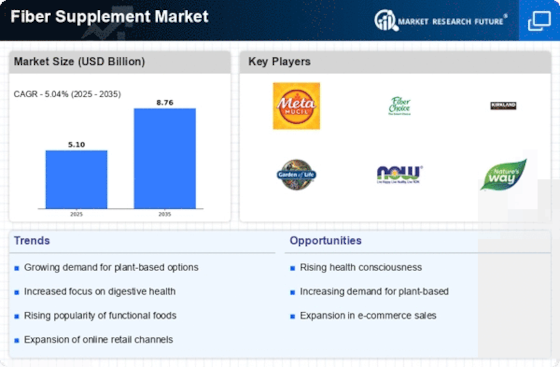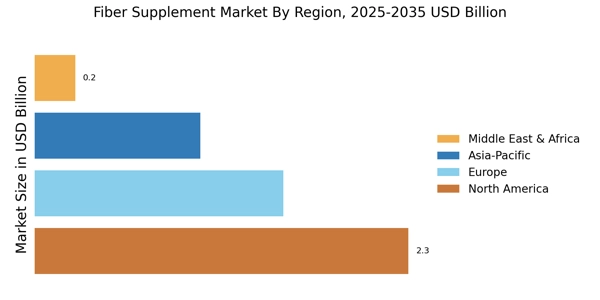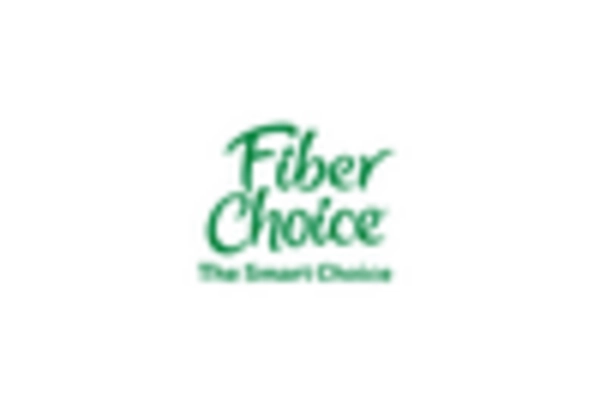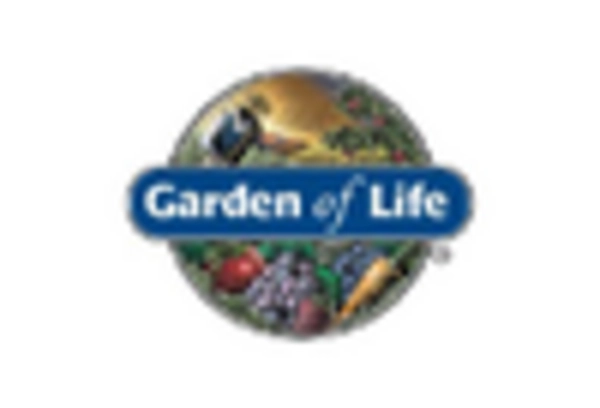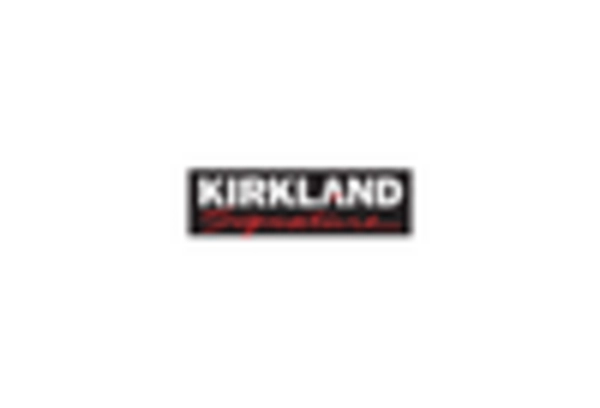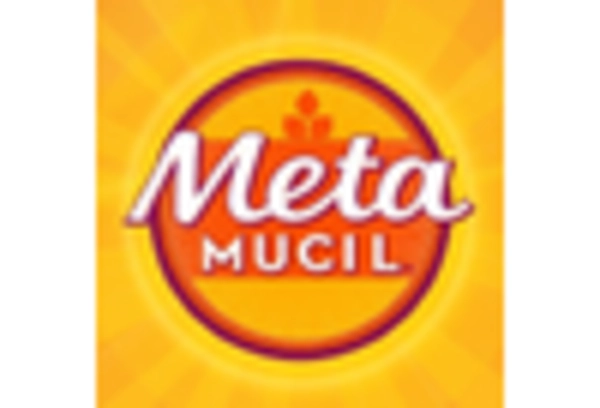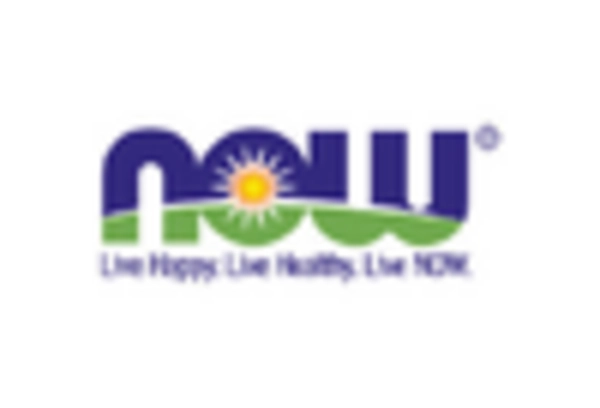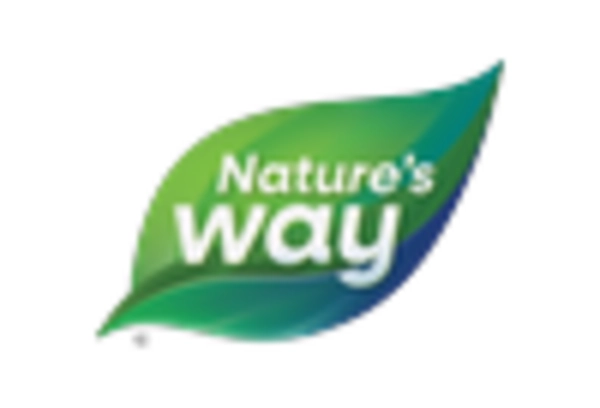Expansion of E-commerce Platforms
The Fiber Supplement Market is significantly benefiting from the expansion of e-commerce platforms, which have transformed the way consumers access health products. The convenience of online shopping has led to an increase in the purchase of fiber supplements, as consumers seek easy access to a wide variety of products. Market analysis indicates that e-commerce sales of dietary supplements, including fiber, have surged, with online channels accounting for a substantial share of the market. This trend is likely to continue, as consumers appreciate the ability to compare products, read reviews, and access detailed information about fiber supplements. Furthermore, the rise of subscription services for dietary products is enhancing customer loyalty and repeat purchases, thereby contributing to the overall growth of the fiber supplement market.
Shift Towards Preventive Healthcare
The Fiber Supplement Market is witnessing a paradigm shift towards preventive healthcare, as individuals increasingly prioritize wellness over treatment. This trend is reflected in the rising consumption of dietary supplements, including fiber products, which are perceived as essential for maintaining overall health. The market data suggests that consumers are more inclined to invest in preventive measures, with fiber supplements being recognized for their role in reducing the risk of chronic diseases such as obesity and diabetes. This proactive approach to health management is likely to drive the demand for fiber supplements, as they are associated with various health benefits, including improved cholesterol levels and enhanced metabolic function. As a result, the fiber supplement market is expected to continue its upward trajectory, fueled by this growing emphasis on preventive healthcare.
Growing Awareness of Nutritional Benefits
The Fiber Supplement Market is experiencing growth driven by the increasing awareness of the nutritional benefits associated with dietary fiber. Consumers are becoming more educated about the role of fiber in promoting health, leading to a rise in the consumption of fiber supplements. Research indicates that dietary fiber is linked to various health benefits, including improved digestion, weight management, and reduced risk of chronic diseases. This heightened awareness is prompting consumers to seek out fiber supplements as a convenient way to meet their daily fiber intake. As a result, manufacturers are responding by developing a diverse range of fiber products, catering to different dietary preferences and needs. This trend is likely to bolster the fiber supplement market, as more individuals recognize the importance of incorporating fiber into their diets.
Innovative Product Development and Formulation
The Fiber Supplement Market is characterized by innovative product development and formulation, which is crucial for attracting health-conscious consumers. Manufacturers are increasingly focusing on creating unique fiber supplements that offer enhanced benefits, such as improved taste, texture, and bioavailability. This innovation is evident in the introduction of new sources of fiber, including plant-based and functional fibers, which appeal to a broader audience. Market data suggests that the demand for organic and natural fiber supplements is on the rise, reflecting consumer preferences for clean-label products. Additionally, advancements in technology are enabling the development of more effective delivery systems for fiber supplements, further enhancing their appeal. As a result, the fiber supplement market is likely to thrive, driven by continuous innovation and the introduction of products that meet evolving consumer demands.
Increasing Demand for Digestive Health Solutions
The Fiber Supplement Market is experiencing a notable surge in demand for products that promote digestive health. As consumers become more aware of the importance of gut health, the market for fiber supplements is expanding. Research indicates that a significant portion of the population suffers from digestive issues, leading to a heightened interest in dietary fibers. In fact, the fiber supplement market is projected to grow at a compound annual growth rate of approximately 8% over the next few years. This growth is driven by the increasing prevalence of gastrointestinal disorders and the rising awareness of the benefits of dietary fiber in maintaining digestive health. Consequently, manufacturers are focusing on developing innovative fiber supplements that cater to this growing consumer need.


